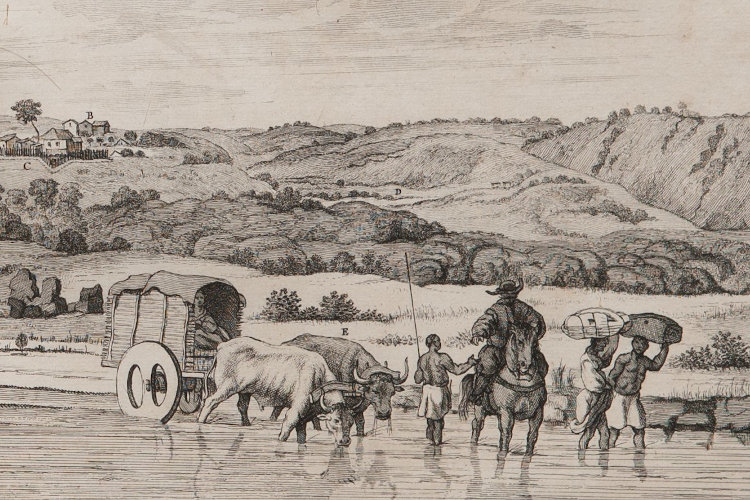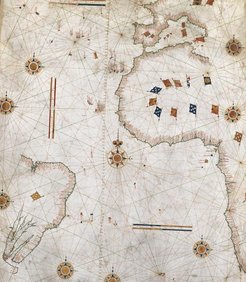
Decaying Sweetness: Differentiation and early modern citizenship during the Dutch intrusion in the Atlantic Iberian World, 1580-1674
Promotionsprojekt
This dissertation project analyses the construction of early modern citizenship across the Iberian South Atlantic from the beginning of the Iberian Union in 1580 until the bankruptcy of the old Dutch West India Company in 1674. Based on different historical records such as maps, chronicles, official reports, royal letters and doctrinal books, this research seeks to address the social evolution of normativities regarding the inclusion and exclusion of persons and groups of persons, comparing different European territorial expansions that shared the same space and time.
The documentation of interactions among diverse historical actors, whether sustained or short-lived, constitutes the primary archive of this study. I argue that early modern citizenship is best understood as a web of different normativities made legible through local practices. The dynamics of any given location were a product of the comings and goings of diverse actors such as local people, officials, missionaries, merchants, sailors, soldiers, travellers, settlers and enslaved persons. These actors expressed their normative expectations of others in many different forms, registers and modalities of articulation, often combined in a single impression, ranging from notions of justice, esteem or admiration, disdain or fear. These normative expectations and preconceived notions can be read not only in moments of their successful articulation but also in moments of crisis and conflict when they are challenged or shown to be unfit to circumstances on the ground. They can also be found in a more generalised version in collective depictions. But instead of a frame from a perceptive subject, all those references, written allusions or personal testimonials, can provide a glimpse of certain available normativities, a condensed web of know-how, and knowledge that preempt considerations of what constitute the normative guidelines of franchisement and civic membership.
What connects these references from different locations was the initial development of distinct colonial administrations, missionary projects and military action during the sixteenth and seventeenth centuries. By exploring the circuits of legal-political and religious communications that are employed to deal with the adverse conditions overseas, the present study attempts to outline those networks via a comprehensive description of understandings of inclusion and exclusion of persons and groups of persons.

It focuses on the status of persons and social roles of groups inserted into two disputed frontier zones of Luso-Iberian territories: the state of Maranhão, located in the Amazonian region, and, on the other side of the Atlantic, the jurisdictions of Congo and Angola, together known as Central West Africa. The aim here is not to offer a general theory about early modern citizenship in inter-imperial spaces; instead, it addresses how we can observe patterns of variability based on situations of colonial expansion in a shared space and time.
Nowadays, in the face of a contemporary society that has increasingly asserted itself as a world society interconnected through communication, the assumptions of territoriality and kinship associated with political-legal membership are no longer contained within state boundaries or by identities of national belonging. Therefore, the current situation advocates a broad understanding of changes through history and the perpetuation of negative discrimination from a global perspective.
Titelbild: SERINHAÉM. In: ENCICLOPÉDIA Itaú Cultural de Arte e Cultura Brasileiras. São Paulo: Itaú Cultural, 2020. ISBN: 978-85-7979-060-7
